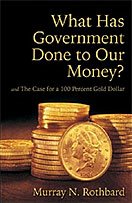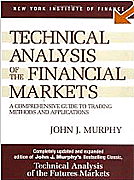Casey Research: Gold bugs, you ain't seen nothing yet..
What follows is an excerpt from Casey Research's Managing Director, David Galland weekly missive: "The Room". This week it is -fittingly- titled "The Building Storm: Gold, the Dollar and Inflation"
"... So have we reached the moment when gold bugs must start questioning their deepest assumptions. Have they bought too deeply into the "dollar-collapse/M3 monetary bubble" tale, ignoring all the other moving parts in the complex global system? Nobody wants to be left holding the bag all the way down to the bottom of the slide, long after the hedge funds have sold out.
Well, my own view is that gold bugs should start looking very closely at something else: the implosion of Europe. (Japan is in recession too.)
Germany's economy shrank by 1 percent in Q2. Italy shrank by 0.3 percent. Spain is sliding into a crisis that looks all too like the early stages of Argentina's debacle in 2001. The head of the Spanish banking federation today pleaded with the European Central Bank for rescue measures to end the credit crisis.
The slow-burn damage of the over-valued euro is becoming apparent in every corner of the eurozone. The ECB misjudged the severity of the downturn, as executive board member Lorenzo Bini-Smaghi admitted today in the Italian press. By raising interest rates into the teeth of the storm last month, Frankfurt has made it that much more likely that parts of Europe's credit system will seize up as defaults snowball next year.
As readers know, I do not believe the eurozone is a fully workable currency union over the long run. There was a momentary "convergence" when the currencies were fixed in perpetuity, mostly in 1995. They have diverged ever since. The rift between North and South was not enough to fracture the system in the first post-EMU downturn, the dotcom bust. We have moved a long way since then. The Club Med bloc is now massively dependent on capital inflows from North Europe to plug their current account gaps: Spain (10 percent), Portugal (10 percent), Greece (14 percent). UBS warned that these flows are no longer forthcoming.
The central banks of Asia, the Mideast, and Russia have been parking a chunk of their $6 trillion reserves in European bonds on the assumption that the euro can serve as a twin pillar of the global monetary system alongside the dollar. But the euro is nothing like the dollar. It has no European government, tax, or social security system to back it up. Each member country is sovereign, each fiercely proud, answering to its own ancient rhythms.
It lacks the mechanism of "fiscal transfers" to switch money to depressed regions. The Babel of languages keeps workers pinned down in their own country. The escape valve of labour mobility is half-blocked. We are about to find out whether EMU really has the levels of political solidarity of a nation, the kind that holds America's currency union together through storms.
My guess is that political protest will mark the next phase of this drama. Almost half a million people have lost their jobs in Spain alone over the last year. At some point the feeling of national impotence in the face of monetary rule from Frankfurt will erupt into popular fury. The ECB will swallow its pride and opt for a weak euro policy, or face its own destruction.
What we are about to see is a race to the bottom by the world's major currencies as each tries to devalue against others in a beggar-thy-neighbour policy to shore up exports, or indeed simply because they have to cut rates frantically to stave off the consequences of debt-deleveraging and the risk of an outright slump.
When that happens -- if it is not already happening -- it will become clear that both pillars of the global monetary system are unstable, infested with the dry rot of excess debt.
The Fed has already invoked Article 13 (3) -- the "unusual and exigent circumstances" clause last used in the Great Depression -- to rescue Bear Stearns. The US Treasury has since had to shore up Fannie and Freddie, the world's two biggest financial institutions.
Europe's turn will come next. We will discover that Europe cannot conduct such rescues. There is no lender of last resort in the system. The ECB is prohibited by the Maastricht Treaty from carrying out direct bail-outs. There is no EU treasury. So the answer will be drift and paralysis.
When EU Single Market Commissioner Charlie McCreevy was asked at a dinner what Brussels would have done if the eurozone faced a crisis like Bear Stearns, he rolled his eyes and thanked the heavens that no such crisis had yet happened.
It will.
Gold bugs, you ain't seen nothing yet. Gold at $800 looks like a bargain in the new world currency disorder."
"... So have we reached the moment when gold bugs must start questioning their deepest assumptions. Have they bought too deeply into the "dollar-collapse/M3 monetary bubble" tale, ignoring all the other moving parts in the complex global system? Nobody wants to be left holding the bag all the way down to the bottom of the slide, long after the hedge funds have sold out.
Well, my own view is that gold bugs should start looking very closely at something else: the implosion of Europe. (Japan is in recession too.)
Germany's economy shrank by 1 percent in Q2. Italy shrank by 0.3 percent. Spain is sliding into a crisis that looks all too like the early stages of Argentina's debacle in 2001. The head of the Spanish banking federation today pleaded with the European Central Bank for rescue measures to end the credit crisis.
The slow-burn damage of the over-valued euro is becoming apparent in every corner of the eurozone. The ECB misjudged the severity of the downturn, as executive board member Lorenzo Bini-Smaghi admitted today in the Italian press. By raising interest rates into the teeth of the storm last month, Frankfurt has made it that much more likely that parts of Europe's credit system will seize up as defaults snowball next year.
As readers know, I do not believe the eurozone is a fully workable currency union over the long run. There was a momentary "convergence" when the currencies were fixed in perpetuity, mostly in 1995. They have diverged ever since. The rift between North and South was not enough to fracture the system in the first post-EMU downturn, the dotcom bust. We have moved a long way since then. The Club Med bloc is now massively dependent on capital inflows from North Europe to plug their current account gaps: Spain (10 percent), Portugal (10 percent), Greece (14 percent). UBS warned that these flows are no longer forthcoming.
The central banks of Asia, the Mideast, and Russia have been parking a chunk of their $6 trillion reserves in European bonds on the assumption that the euro can serve as a twin pillar of the global monetary system alongside the dollar. But the euro is nothing like the dollar. It has no European government, tax, or social security system to back it up. Each member country is sovereign, each fiercely proud, answering to its own ancient rhythms.
It lacks the mechanism of "fiscal transfers" to switch money to depressed regions. The Babel of languages keeps workers pinned down in their own country. The escape valve of labour mobility is half-blocked. We are about to find out whether EMU really has the levels of political solidarity of a nation, the kind that holds America's currency union together through storms.
My guess is that political protest will mark the next phase of this drama. Almost half a million people have lost their jobs in Spain alone over the last year. At some point the feeling of national impotence in the face of monetary rule from Frankfurt will erupt into popular fury. The ECB will swallow its pride and opt for a weak euro policy, or face its own destruction.
What we are about to see is a race to the bottom by the world's major currencies as each tries to devalue against others in a beggar-thy-neighbour policy to shore up exports, or indeed simply because they have to cut rates frantically to stave off the consequences of debt-deleveraging and the risk of an outright slump.
When that happens -- if it is not already happening -- it will become clear that both pillars of the global monetary system are unstable, infested with the dry rot of excess debt.
The Fed has already invoked Article 13 (3) -- the "unusual and exigent circumstances" clause last used in the Great Depression -- to rescue Bear Stearns. The US Treasury has since had to shore up Fannie and Freddie, the world's two biggest financial institutions.
Europe's turn will come next. We will discover that Europe cannot conduct such rescues. There is no lender of last resort in the system. The ECB is prohibited by the Maastricht Treaty from carrying out direct bail-outs. There is no EU treasury. So the answer will be drift and paralysis.
When EU Single Market Commissioner Charlie McCreevy was asked at a dinner what Brussels would have done if the eurozone faced a crisis like Bear Stearns, he rolled his eyes and thanked the heavens that no such crisis had yet happened.
It will.
Gold bugs, you ain't seen nothing yet. Gold at $800 looks like a bargain in the new world currency disorder."
Labels: financial crisis, inflation















![[Most Recent Quotes from www.kitco.com] [Most Recent Quotes from www.kitco.com]](http://www.kitco.com/images/live/t24_au_en_usoz_6.gif)
![[Most Recent Quotes from www.kitco.com] [Most Recent Quotes from www.kitco.com]](http://www.kitco.com/images/live/au_go_0030_ny.gif)
![[Most Recent Quotes from www.kitco.com] [Most Recent Quotes from www.kitco.com]](http://www.kitco.com/images/live/au_go_0365_ny.gif)
![[Most Recent Quotes from www.kitco.com] [Most Recent Quotes from www.kitco.com]](http://kitconet.com/charts/metals/silver/t24_ag_en_usoz_4.gif)

















0 ΣΧΟΛΙΑ (COMMENTS):
Post a Comment
<< Home